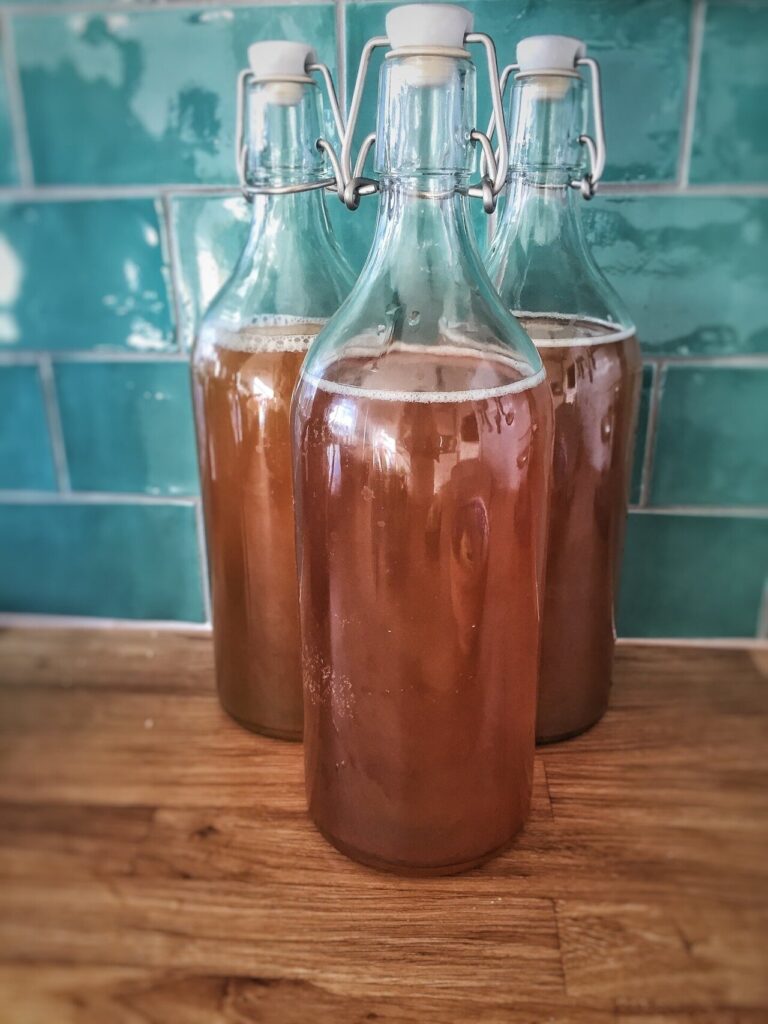Kombucha Consumption Shows Promise in Reducing Blood Sugar Levels for T2D Patients: Small Pilot Study
A recent small-scale pilot study conducted by researchers from Georgetown University’s School of Health, the University of Nebraska-Lincoln, and MedStar Health suggests that drinking kombucha may lead to reduced blood sugar levels in individuals with type-2 diabetes. These preliminary findings indicate the potential for a dietary intervention that could benefit diabetes management and call for larger trials to further investigate this promising avenue.
Introduction
Kombucha, a fermented tea drink containing bacteria and yeast cultures, has a long history of consumption, dating back to 200 B.C. in China. In recent years, it gained popularity in the United States, with anecdotal claims suggesting various health benefits, such as improved immunity, increased energy, reduced food cravings, and decreased inflammation. However, there is a lack of data in the scientific community to support these statements.
First Clinical Trial for Kombucha and Diabetes
This pilot study represents the first clinical trial examining the effects of kombucha consumption in individuals with diabetes. “Some laboratory and rodent studies of kombucha have shown promise,” said study author Dan Merenstein, M.D., a professor of Human Sciences at Georgetown’s School of Health and a professor of family medicine at Georgetown University School of Medicine. “One small study in people without diabetes showed kombucha lowered blood sugar levels; however, to our knowledge, this is the first clinical trial examining the effects of kombucha in people with diabetes.” This calls for a great deal more investigation, but the results so far are highly encouraging.
Read Guide about Wegovy Dosage Guide: The Best Way For Weight Loss
A notable strength of the trial was that participants were not given specific dietary instructions, thanks to a crossover design that minimized the impact of diet variability.
Tip: Please fill out this form to determine whether or not you or a friend are eligible for a CGM.
Study Design and Results
In the study, one group of participants consumed approximately eight ounces of kombucha or a similar-tasting placebo beverage daily for four weeks. After a two-month period to eliminate any lingering biological effects of the beverages, the two groups swapped, with another four weeks of beverage consumption. Importantly, neither group was informed which drink they were receiving at any given time.
The results indicated that kombucha consumption appeared to reduce average fasting blood glucose levels from 164 to 116 milligrams per deciliter after four weeks, while the difference observed after four weeks with the placebo was not statistically significant. According to the American Diabetes Association’s guidelines, blood sugar levels before meals should ideally fall between 70 to 130 milligrams per deciliter.
Microbial Analysis of Kombucha
To delve deeper into the composition of fermenting micro-organisms in kombucha, the researchers conducted microbial analysis. They discovered that kombucha primarily consisted of lactic acid bacteria, acetic acid bacteria, and a yeast variant known as Dekkera. Each of these microbes was present in roughly equal proportions, a finding confirmed through RNA gene sequencing.
Reassuring Consistency Among Brands
The kombucha used in this study was sourced from Craft Kombucha, a commercial manufacturer in the Washington, D.C., area, which has since re-branded as Brindle Boxer Kombucha.
According to Robert Hutkins, Ph.D., senior author of the study from the University of Nebraska-Lincoln, “Different studies of different brands of kombucha by different manufacturers reveal slightly different microbial mixtures and abundances. It was reassuring for our study to find that the primary bacteria and yeasts are highly reproducible and likely to be functionally comparable between different brands and batches.
Must Read About: Simple Blood Test as a Predictor of Heart and Kidney Risk in T2D
Implications for Diabetes Management
Diabetes is a significant health concern, affecting millions of individuals in the United States. Chagai Mendelson, M.D., the lead author of the study, emphasized the importance of the findings: “An estimated 96 million Americans have pre-diabetes, and diabetes itself is the eighth leading cause of death in the United States, as well as a major contributor to the development of cardiovascular disease, stroke, and kidney failure.
We were able to show some preliminary evidence that a typical beverage may have an impact on diabetes. “We hope that a much larger trial, using the lessons we learned in this trial, could be undertaken to give a more definitive answer as to the effectiveness of kombucha in reducing blood glucose levels and, as a result, preventing or aiding in the treatment of type-II diabetes.”
Conclusion
This preliminary study offers encouraging insights into the potential benefits of kombucha for individuals with type-2 diabetes. While further research is needed to confirm and expand upon these findings, it opens the door to a promising avenue for diabetes management through dietary interventions. The results were published in Frontiers in Nutrition on August 1, 2023. The study was authored by Dan Merenstein, M.D., Sabrina Sparkes, Varun Sharma, Sameer Desale, Chloe Christensen, Jennifer M. Auchtung, Car Reen Kok, Heather E. Hallen-Adams, and Robert Hutkins, Ph.D.


